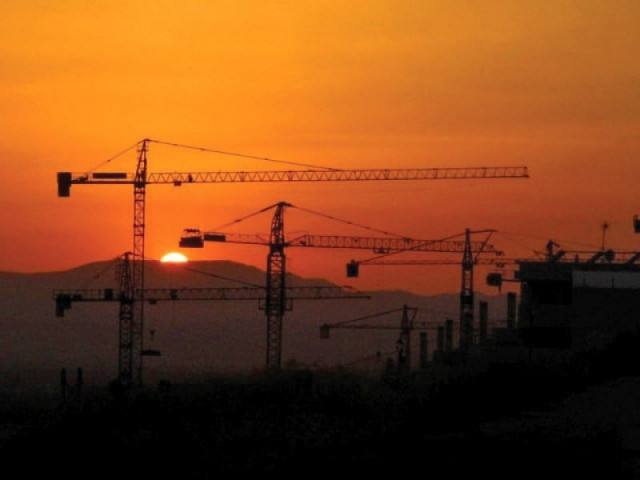Power-driven: PC seeks powers to approve up to Rs10b projects
National Economic Council to discuss proposal in May 29 meeting.

Though the federal government has proposed Rs525 billion development budget for next year, the projects have not yet been finalised due to the ongoing scrutiny. PHOTO: FILE
The National Economic Council (NEC) is going to discuss a proposal to grant more powers to Planning and Development Minister Ahsan Iqbal and curtail the authority of Finance Minister Ishaq Dar in relation to approval of mega development schemes without affecting his overarching position.
The Planning Commission (PC) has prepared a proposal for the NEC – the supreme economic decision-making body chaired by Prime Minister Nawaz Sharif – that says the Central Development Working Party’s (CDWP) powers to approve development schemes costing up to Rs1 billion may be enhanced, enabling it to give the go-ahead to Rs10 billion worth of projects, sources said.
CDWP is headed by the planning minister and enjoys authority to approve up to Rs1 billion schemes. Projects that cost above Rs1 billion are recommended to the Executive Committee of National Economic Council (Ecnec) for final approval, which is headed by the finance minister.
PC officials say the move is aimed at ensuring fast-track decisions and will also ensure decentralisation of power. It will also significantly reduce the workload of Ecnec.
Sources said the proposal was also aimed at striking some balance between the two federal ministers.
However, Dar’s opinion on the issue would determine the outcome, as there was a possibility that he may not like to share powers with the planning minister, sources said.
So far, Dar remains on the driving seat when it comes to setting the economic agenda. He has given very limited role to Iqbal and rarely considers the planning ministry’s input in deciding about the economic growth rate during parleys with the International Monetary Fund, sources said.
The IMF’s programme focuses on fiscal consolidation at the expense of strong economic growth.
NEC is scheduled to meet on May 29 to approve next fiscal year’s national economic framework in addition to approving federal and provincial development budgets. Chief ministers of four provinces and Gilgit-Baltistan and a representative of Azad Jammu and Kashmir are members of the NEC.
Though the federal government has proposed Rs525 billion development budget for next year, the projects have not yet been finalised due to ongoing scrutiny by a committee headed by Hamza Shahbaz, son of the Punjab chief minister.
Other member of the committee is Captain (Retired) Safdar, son-in-law of Prime Minister Nawaz Sharif. The committee on Wednesday reviewed every project that would be included in next year’s plan.
During the outgoing fiscal year, the CDWP met nine times and approved 80 projects with a total cost of Rs41 billion.
Ecnec also held nine meetings and approved 70 projects worth Rs2.6 trillion. These included mega development projects like the Karachi Nuclear Power Plants, Dasu hydropower project, Jamshoro coal-fired power project, etc.
According to the Ministry of Planning’s estimates, if the NEC enhances CDWP’s powers to approve up to Rs10 billion projects, it will reduce Ecnec’s workload by more than three-fourth. If CDWP’s powers are increased for projects up to Rs5 billion, it will reduce Ecnec’s work by half.
While additional powers may ease Ecnec’s burden, they will affect existing checks and balances. Ecnec has often returned projects for reconsideration that have been recommended by the CDWP for approval.
But Planning Commission officials argued that faulty project documents were more the fault of the ministries concerned than the CDWP or the Planning Commission.
Published in The Express Tribune, May 22nd, 2014.
Like Business on Facebook, follow @TribuneBiz on Twitter to stay informed and join in the conversation.


















COMMENTS
Comments are moderated and generally will be posted if they are on-topic and not abusive.
For more information, please see our Comments FAQ